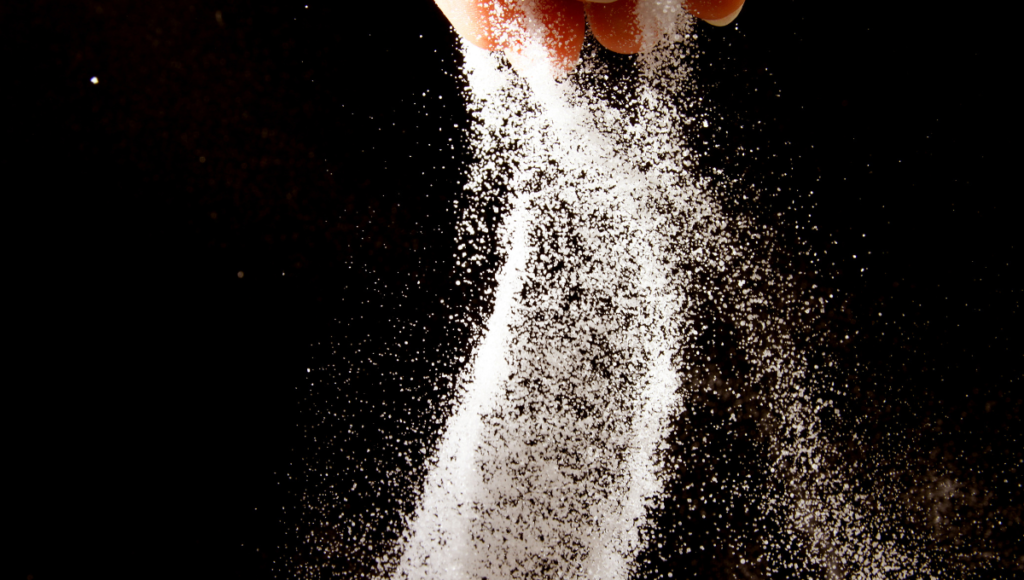According to WHO most people consume too much salt. On average it’s 9–12 grams per day, or around twice the recommended maximum level of intake. An estimated 2.5 million deaths could be prevented each year if global salt consumption were reduced to the recommended level.
Many people use more salt on their food as they get older. Researcher Carolyn Ross of Washington State University (USA) says:
“… the ability to taste and smell is known to weaken with age, and weaker perception of salty flavors may induce people to season their food with excessive salt, which may increase their risk of cardiovascular disease.”
How much salt is unhealthy in a day?
Salt intake of less than 5 grams per day for adults helps to reduce blood pressure and the risk of cardiovascular disease, stroke and coronary heart attack. 5gms is just under a teaspoon of salt but remember this is salt from all sources including breakfast cereals, processed foods, bread, and processed meals. It’s not just about the salt you add from a salt-shaker. In many countries, about 80% of salt in the diet comes from processed foods.
The Queensland Government health website (Australia) gives this advice for choosing processed food: “Try to aim for items that have less than 120mg of sodium per 100 grams of the food.”
Salt and high blood pressure
Dr. Michael Gregor of nutritionfacts.org summarises the research in this way:
“The evidence that sodium raises blood pressure is clear, including double-blind, randomized trials dating back decades. If we take subjects with high blood pressure and put them on a sodium-restricted diet, their blood pressure drops. If we keep them on the low-salt diet and add a placebo, nothing happens. However, if we instead give subjects salt in the form of a time-release sodium pill, their blood pressure goes back up again. The more sodium we give them secretly, the higher their blood pressure climbs.”
As you get older, your body and blood pressure become more sensitive to salt, so it’s particularly important to reduce your salt intake as you get older.
How do you reduce your salt intake?
The World Health Organisation recommends that you reduce your salt intake at home by:
• not adding salt during the preparation of food
• not having a salt-shaker on the table
• limiting the consumption of salty snacks
• choosing products with lower sodium content
Try also adding fresh or dried herbs and spices to food rather than reaching for the salt-shaker. Carolyn Ross gave white sauce to 39 research participants who were over 60. The study participants were asked to compare three different formulations of the sauce at five different salt concentrations. One of the formulations had no added herbs, the second had just herbs, and the third had both herbs and chipotle seasoning. Their results showed the formulation with both herbs and chipotle seasoning made it difficult for the seniors to determine the amount of salt being used while the formulation with exclusively herbs did not. This research suggests it may be particularly important to add more spices to food as you get older. Even if you’ve never liked spicy food, it may be now you will enjoy it, because your sense of taste may be less strong.
If you are used to adding a lot of salt to your food or eating salty snacks, this can seem too difficult. It’s best to reduce your salt intake bit by bit, giving your taste buds chances to adapt. Also, seek out non- salty snacks, but don’t reach for the high-sugar ones instead!
I recently had a good example of how our taste buds can adjust. I’ve always loved crisps (called chips in the USA). That salty taste … mmm. Earlier this year my partner bought some “naked” crisps. They had no salt. I was dubious about what they would taste like but decided to give them a try. I was surprised at how much I liked them. The crunchy texture was still there. Since then, we’ve always bought the crisps without salt. Recently I was travelling and bought a packet of crisps with salt, as that is all that was available. They tasted terrible – it felt like I was eating neat salt! Just shows how your taste buds can and do adjust. We haven’t evolved to eat this amount of salt, so in reducing our salt intake we are going back to what our salt intake should be. It makes sense that the body will adapt to that.
Salt FAQs
WHO lists some of the misconceptions people often have about salt and its response:
• “On a hot and humid day when you sweat, you need more salt in the diet:” There is little salt lost through sweat so there is no need for extra salt even on a hot and humid day, although it is important to drink a lot of water.
• “Sea salt is not ‘better’ than manufactured salt simply because it is ‘natural.’” Regardless of the source of salt, it is the sodium in salt that causes bad health outcomes.
• “Foods high in salt taste salty.” Some foods that are high in salt don’t taste very salty because sometimes they are mixed with other things like sugars that mask the taste. It is important to read food labels to find out sodium levels.
High salt intake has also been linked to some cancers, particularly stomach cancer. But it is difficult to confirm a clear link because a high intake of salt often means a high intake of processed foods, which are linked to cancer.
High salt consumption has also been linked to obesity. Action on Salt is based at Queen Mary University of London (UK). Their website explains:
“Whilst salt is not a direct cause of obesity, it is a major influencing factor through its effect on soft drink consumption: salt makes you thirsty and increases the amount of fluid you drink. “
This actually may turn out not to be true. There may be a direct link. Animal studies have shown that salt affects the hormone leptin, which plays a major part in regulating appetite.
High salt intakes have also been linked to asthma, dermatitis, autoimmune diseases and gastrointestinal bloating.
The heartandstroke website (Canada) says:
“Keep in mind that just because a food claims to be low in sodium doesn’t mean it’s healthy. These foods may still be high in fat, sugar and other undesirable ingredients”
The evidence is clear: eating less salt is beneficial for everyone whatever your age.


